#Seneca village
Explore tagged Tumblr posts
Text
5 notes
·
View notes
Text
Seneca Village
NO. 1
The history of Seneca Village is fraught with history, opportunity, and endurance against racism and white supremacy. In 1825, a ‘‘25-year-old African American shoe shiner named Andrew Williams bought land in the middle of Manhattan, two years before slavery was abolished in New York. More free Black Americans followed, fleeing the disease and discrimination of downtown, and together they created the bustling settlement. The village was home to the most significant number of African American property owners in NY before the Civil War. Because those black men possessed property, they were allowed to vote. Irish and German immigrants could also live there, and white and black churchgoers often side-by-side.
youtube
NO. 2
As you can see, Seneca Village was a thriving community, living far from the dense population of downtown, despite NY's abolition law in 1827, discrimination severely limited the lives of the African-American populace. Seneca Village provided access to more space from the unhealthy and crowded conditions of the city. ''By 1855, there were 52 houses in Seneca Village. On maps of the area, most of the houses were identified as one-, two-, or three-story houses made out of wood. Archeological excavations uncovered stone foundations and roofing materials, indicating that they were well-built. Some of the houses were identified as shanties, meaning that they were less well-constructed. Land ownership among Black residents was much higher than that in the city as a whole: more than half owned property in 1850, five times the property ownership rate of all New York City residents at the time. Many of Seneca Village's Black residents were landowners and relatively economically secure compared to their downtown counterparts in the Little Africa neighborhood by Greenwich Village.''
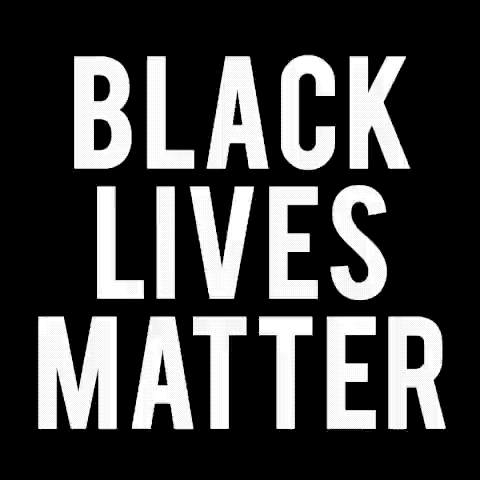
NO. 3
Unfortunately, Seneca's village’s demise had to do with the construction plans of what the settlement is today, Central Park. William Cullen Bryant, ‘‘the editor for the New York Evening Post at the time, and Andrew Jackson Downing, an English landscape architect, started the park project together. The Special Committee on Parks was formed. They surveyed possible sites before selecting Seneca Village, even getting NYS officials to legislate the Central Park Act in July 1853, authorizing a board of five commissioners to start purchasing land and creating a fund to raise money and donations for the plan. Before the acquisition of Central Park, Seneca Village was referred to with derogatory and racial slurs. Advocates for Cental Park used the media to describe Seneca Village and other communities like them as ‘‘poor squatters living in shanties’’.
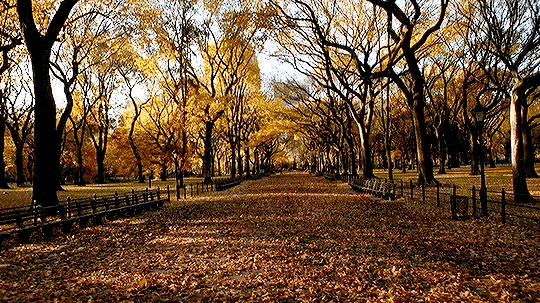
NO. 4
The residents fought against the city’s planning as they were legally entitled to do so as landowners. But the Central Park Act set aside the 775 acres of land in Manhattan from 59th to 106th streets between 5th and 8th avenues to create the country’s first major landscape public park. ‘‘There were roughly 1,600 inhabitants displaced throughout the area. Although landowners were compensated, many argued that their land was undervalued. Ultimately, all residents had to leave by the end of 1857.’’ The settlement was discovered in 2011 when archaeologists from Columbia University uncovered artifacts such as an iron tea kettle, a roasting pan, a stoneware beer bottle, fragments of Chinese export porcelain, and a small shoe with a leather sole and fabric upper. This article is dedicated to the people of Seneca Village and other ‘Little Africa’s’ settlements all over this country that historians and archaeologists are finding in recent times who have continuously fought against the struggles of race, class, and economic opportunities that this country’s governmental systems continuously try to sweep aside.
Artifacts and Archives: The Rediscovery… | Central Park Conservancy (centralparknyc.org)
#Seneca Village#racemedia#racism#discrimination#archaeologicaldigs#archaeological#anthropology#history#archaeologynews#blackhistory#blackhistorymonth#Youtube
2 notes
·
View notes
Text
[Image id: an aerial view of central park /end id]
Here's a couple sources about Seneca Village, the Black community forcibly displaced by the government to build central park:

CENTRAL PARK - NYC
1K notes
·
View notes
Text
A Visit to Seneca Village
Originally posted on my other blog the Trav-a-log, the contents of which I am in the process of transplanting here, so that it will all live in one place! Originally posted August 29, 2011 My old friend, historian and educator Cynthia Copeland now works at NYU and is co-director of the Seneca Village Project, and we have her to thank for a pleasant and informative outing last week. Readers…

View On WordPress
1 note
·
View note
Text
The Lost History of Seneca Village: A 19th-Century African American Settlement in Manhattan
Seneca Village holds a significant place in the history of New York City, as it was a 19th-century settlement that stood as a testament to the resilience and aspirations of its predominantly African American landowners. Nestled within the future grounds of Central Park, this vibrant community emerged as the first of its kind in the city, carving out a space for freedom and prosperity in the face…

View On WordPress
#African American landowners#African architecture#African History#Black American Architecture#Black Architecture#Black Cities#free Black Americans#Seneca Village
0 notes
Text
Repost: Seneca Village
Continue reading Repost: Seneca Village

View On WordPress
0 notes
Text
Never forget Seneca village
103 notes
·
View notes
Text
today i am going to take the train to the exact point in central park where michael ahomka-lindsay headcanoned jack’s family grew up. and no one can stop me
#look up seneca village nyc sometime bc#the city still knows like nothing abt it. it’s a little upsetting#fizz freaks
63 notes
·
View notes
Text
https://www.instagram.com/reel/CvC17jFonVx/?igshid=MTc4MmM1YmI2Ng==
0 notes
Text
" fantasy romance tropes " bnd series masterlist °。⋆⸜ 🪽♡🪄


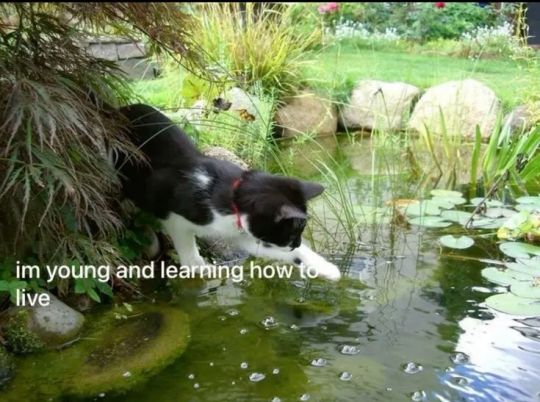
coming soon!
a/n: i was listening to dawn in the adan by ichiko aoba and got inspired to start a series! i barely see any fantasy stuff on here and i'm a big lover of it so here this is :3 <3 (p.s. there won't be an order to posting! it'll be random >3<) i tried to put my own spin on these tropes, so i hope you guys look forward to them! <3

"bloom for me" - sungho x reader ˚ ⋆。˚
angel sungho x human!reader | modern-day au, forbidden love, angst, fluff, hurt/comfort
"sungho has been assigned to be your guardian angel, to look after you from afar, and to make sure you stay out of harm's way. the only rules? don't get too close and never interfere with true fate. but when you find yourself in a dark place, unsure of whether life is truly worth living, sungho finds himself unable to simply sit around and watch you fall apart. he wants to show you the light; even if he must sacrifice everything he has even known for it."
"night life stars" - riwoo x reader ˚ ⋆。˚
elf!riwoo x human!reader | old fantasy au, forbidden love, fluff, angst, hurt/comfort, strangers to lovers
"growing up, you've always been told to never pass the flower field in the woods and to stay far away from elf territory because everyone knows that elves are the most violent creatures in the forest. one summer, a drought spreads throughout your village, and while fetching water from a stream in the woods for your family, you end up slipping and hitting your head on a rock. when you finally wake up, your eyes immediately lock on to a pair of glimmering green ones. eyes that belong to the enemy itself."
"safest sounds"- jaehyun x reader ˚ ⋆。˚
hybrid!jaehyun x human!reader | modern-day au, hybrids & humans, fluff, angst, hurt/comfort, strangers to lovers, living together
"after another tiring day at work, you're walking back to your apartment when you hear soft cries coming from an alleyway. with your undeniable curiosity, you go to find the source of sound—and much to your surprise, you find an abandoned hybrid curled up in a ball, shivering from the cold. with a promise to take him to a shelter when the sun rises, you let him come home with you so he can eat and have a warm place to sleep for the night. in the morning, though, you discover that this hybrid has already claimed you as his owner."
"seneca" - taesan x reader ˚ ⋆。˚
magic!taesan x non-magic!reader | modern-day magic, rivals to lovers, fluff, hurt/comfort
"han taesan. the bane of your existence. he's been your academic rival at your boarding school ever since you transferred a few years ago, and you have despised him ever since. on your way home one day, you end up encountering some people looking for trouble. in the blink of an eye, taesan is there to help you get away, but something is off. might it be his glowing hands and eyes? no, no, no. you must only be imagining things... but taesan's threat to keep everything a secret says otherwise."
"dance on the moon" - leehan x reader ˚ ⋆。˚
mermaid!leehan x human!reader | pirate au, angst, emotional hurt/comfort, hidden love
"there's nothing more that you hate than working as a maid on this deck. your captain and crew are worse than scum and you miss home every day, but you must do as they say if you want to survive. one stormy night, the crew catches a mermaid in their net while in the pits of the sea and your captain declares to sell him on the market as soon as they reach land. but when you become tasked to watch over the poor mermaid every night, you end up promising to help him escape back to his home. maybe he could find a way to help you escape too."
"seek for warmth" - woonhak x reader ˚ ⋆。˚
vampire!woonhak x vampire!reader | vampire au, angst, hurt/comfort, fluff
"woonhak never asked to be a vampire; he never wanted to live a life he didn't choose and be cursed to live forever. thankfully, there's another fledgling in the coven who sees the light still shining in his undead eyes. you're there with him through the insatiable hunger and the yearning for a past he never had the chance to live, holding his hand through it all. eventually, he begins to find solace in your warmth despite his fingers being cold to the touch."

masterlist

#000 pawz ⋆˚🐾˖°#000 pawz masterlist! ⋆˚ฅ ฅ˖°#boynextdoor#boynextdoor fluff#boynextdoor imagines#boynextdoor x reader#bnd#sungho x reader#sungho imagines#riwoo x reader#riwoo imagines#myung jaehyun x reader#myung jaehyun imagines#woonhak x reader#woonhak imagines#<3
169 notes
·
View notes
Text
The Weskwekkehs and the Ganiagwaihegowa [Native American mythology; Penobscot and Seneca mythology]
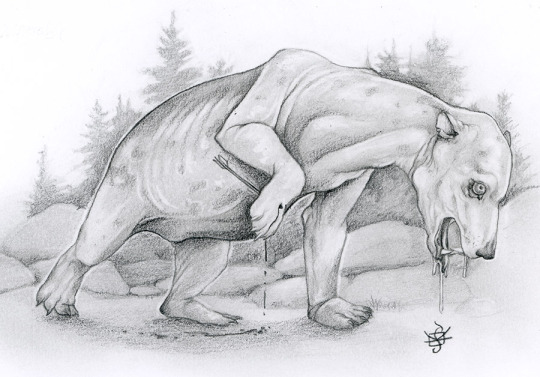
In the traditional belief system of the Native American Penobscot people, it was believed that if a black bear ate human flesh, the animal would undergo a supernatural transformation. It would completely lose its fur, gain supernatural power with which it could magically charm humans, and most importantly, the bear would develop a taste for human flesh. The resulting monster was called a Weskwekkehs, meaning ‘great hairless bear’.
According to one story, a Penobscot hunter ventured too far into the wilds and knew that he would not be able to return home that day. He built a makeshift shelter to spend the night and returned to his hunting camp the following day. But when he arrived, it became clear that something had happened in his absence, for the camp was a mess and his family was nowhere to be seen. He searched every nook and cranny and eventually found his children and wife dead, seemingly trampled by some terrible beast.
The grieving father buried his family and set out to find the killer, and he soon came upon a track of strange footprints. At first glance, they appeared to have been made by a bear, but the shape was somehow different and weird. As he followed the tracks, the hunter came upon a truly colossal tree, which must have been incredibly old. The branches all appeared to be rotting. On top of a large branch close to the very top of the tree, a horrifying monster was resting. It resembled a large, monstrous bear without fur, and the hunter knew at once that this creature must have destroyed his camp and killed his family.
Knowing that he was no match for the monster, he returned to the village and told his story. The men of the village gathered their weapons and hunting equipment and, after a night of rest and preparation, set out to fight the beast.
When they came upon the gigantic tree, the monster descended and howled with a noise that was so terrible, the very ground beneath its feet trembled from its growls. But the men were determined and fierce, and completely riddled their opponent with arrows. In fact, it was said that the bear resembled a porcupine because of all the arrow shafts sticking out of its body. Any natural creature would have died on the spot, but somehow the monster barely seemed to have noticed.
Luckily, the men were accompanied by the village shaman, a wise man who was very knowledgeable about supernatural creatures. He was told by a chickadee that the monster could only be killed by targeting its heel, for that was its only weak spot. He instructed the other men to back away, took aim, and shot an arrow straight into the Weskwekkehs’ heel. Indeed, the monster was now dying. It addressed the shaman and, speaking as if it were human, admitted his defeat. The beast said that the people managed to overpower him, and so he would never bother humans again. The dying Weskwekkehs stumbled into the water and was never seen again.
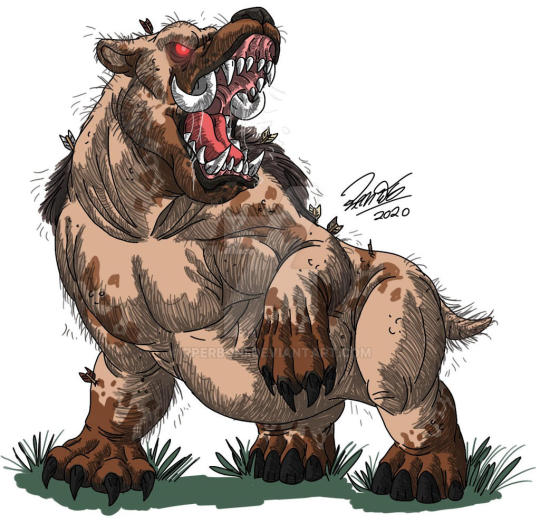
That is the short version of the Penobscot tale. There are multiple variations of this story, but they all have the same underlying structure. One of these regional variants comes from the Native American Seneca people, and as the folktale goes, the region that is now New York was once haunted by a horrible monster they called Ganiagwaihegowa. People who ventured alone into the woods were devoured by this beast, which resembled a huge, monstrous bear with no fur, and it was known to chase and eat people who had seen its footprints in the ground. The creature could not be defeated by ordinary hunters, for no wound could bring it down. Two local folk heroes, Hadentheni and Hanigongendatha, set out to slay this fiend and consulted a great and benevolent spirit for advice. The spirit told them that the creature had only one weakness: a spot on the soles of its paws.
Still, they knew that they did not stand a chance against the great beast in open combat, so the two heroes devised a plan to trick it. They collected bits of wood and built an effigy shaped like a human, which they erected outside of the monster’s lair. Ganiagwaihegowa, always hungry for human flesh, fell for the bait and walked right into the ambush. In the ensuing battle, the heroes managed to hit the creature’s sole with an arrow. After the great beast died, the two men burned its corpse to make sure it would never return.
There are several other local variations of the story, such as the Katcheetohuskw from the Naskapi people. Given that all of these variations were described as monstrous, hairless bears, I wonder if these stories originated from sightings of bears with mange.
Sources: Siebert, F. T. (1937), Mammoth or “Stiff-legged bear”, American Anthropologist, New Series, 39(4), pp. 721-725. Bane, T. (2016), Encyclopedia of Beasts and Monsters in Myth, Legend and Folklore, McFarland, 423 pp., p.133. (image source 1: Karen Sim) (image source: RPerboni on Deviantart)
#Native American mythology#Penobscot mythology#Seneca mythology#monsters#mythical creatures#mythology#bestiary#folklore
46 notes
·
View notes
Text

American Robin selects the wrinkly ,maybe fermented berry. Seneca village ,Central park.
135 notes
·
View notes
Photo

George Washington
George Washington (1732-1799) was an American military officer and statesman who led the Continental Army to victory during the American Revolutionary War (1775-1783) and served as the first President of the United States (1789-1797). Often regarded as the ‘Father of His Country’, Washington remains one of the most revered and iconic figures in U.S. history.
Early Life
George Washington was born at 10 am on 22 February 1732 at Pope’s Creek plantation in Westmoreland County, Virginia. He was the first of six children born to Augustine Washington, a wealthy Virginian landowner, and his second wife Mary Ball Washington; George also had four older half-siblings from his father’s first marriage. Little is known about George’s childhood. His early years were mostly spent on the family property of Ferry Farm on the Rappahannock River, and he likely attended school in Fredericksburg, Virginia, where he excelled in the subjects of geometry, trigonometry, and mapmaking. When his father suddenly died in 1743, 11-year-old George inherited Ferry Farm as well as ten enslaved people. Too young to fend for himself, he went to live with his eldest half-brother, Lawrence Washington (b.1718), at Mount Vernon. George idolized Lawrence, who he came to regard as both a father figure and a best friend.
George’s aptitude for mathematics led him to consider a career as a land surveyor, a respectable path to wealth and social advancement. In 1748, at the age of 16, he embarked on his first expedition into the Shenandoah Valley to survey the property of his influential neighbor, Thomas Fairfax. The next year, he earned his surveyor’s license and, through Fairfax’s patronage, was appointed surveyor for Culpeper County. Over the next three years, Washington completed 200 surveying expeditions and measured a total of 60,000 acres along Virginia’s western frontier. But just as George's career was taking off, Lawrence came down with tuberculosis. In November 1751, he went to the Caribbean island of Barbados in the hopes that the tropical air would improve his condition. George accompanied him, and contracted a painful case of smallpox during his brief stay on the island. George soon recovered but Lawrence was not so lucky, as he died shortly after returning to Virginia in 1752. After his brother's death, George started leasing Mount Vernon from Lawrence’s widow and became the legal owner of the property after her own death in 1761.
In 1753, George Washington reached the age of maturity, and was eager to find a way to make a name for himself. He would soon have an opportunity. The French had begun to construct forts on the forks of the Ohio River, fertile territory that had been claimed by Virginia. In November, Washington was sent as an envoy to demand that the French vacate the Ohio Country at once. On his journey into the west, he was joined by Christopher Gist, an experienced frontiersman and guide, and Tanacharison, a Mingo chieftain called the ‘Half-King’ by Virginians. It was Tanacharison who gave Washington the Seneca name of ‘Conotocaurius’ or ‘Devourer of Villages’, in reference to Washington’s great-grandfather, who had helped expel Native Americans from their lands in Virginia. The small party reached the French Fort LeBoeuf during a snowstorm; although they were received cordially by the fort’s commander, Washington’s demands were firmly rebuffed. Washington then embarked on his trek back to Virginia which included several perilous episodes. While crossing the icy Alleghany River in a raft, Washington fell overboard, and likely would have drowned had Gist not pulled him from the water.
George Washington as a Land Surveyor
Henry Hintermeister (Public Domain)
Continue reading...
33 notes
·
View notes
Text
i’m currently re-reading the hunger games for the first time since literally middle school and i have so many thoughts.
a. haymitch is so much worse of a drinker in the books like i forgot how genuinely incoherent and essentially useless he is at first
b. i forgot how young katniss is. i feel like it’s hard to keep in mind that she’s 16 in the movies and still a child throughout the series and i find it so heartbreaking that someone so young is forced into providing for her family, fighting to the death, leading a rebellion, etc. it could also be the fact that i’m older than her character now and i’m looking back and realizing how immature 16 year olds are as opposed to when i was like 11 and thought they were basically adults.
c. omg my heart breaks for everyone in the series. the only stand out characters i can really think of who i don’t have any sympathy for are seneca crane, snow, and coin. like the lesser-regarded deaths are the careers’ (that is everyone sympathizes with thresh, rue, reaper, jessup, basically everyone in tbosbas but people are less inclined to sympathize with the careers). i find their deaths so tragic because they thought they were going to go home. clove and cato wanted to go home together just like katniss and peeta did.
d. one of my favorite additions to the movie is thresh’s almost brotherly relationship with rue. because in the books katniss mentions that he never really even took an interest in his district partner (rue obv; but ofc she only saw them at training so we don’t really know) but in the movies, when rue steals that knife, thresh looks at her like proudly and omg my heart. like obviously thresh cared about rue because he killed clove and spared katniss but that small addition makes me smile every time. and because he was such a good person his death kills me. reaper too. they both cared so much and were much better people than the capitol. district 11 were raising their children right.
e. my heart breaks for peeta in particular. he is such a good fucking person and i feel like no one returns it in the way he deserves. he gives and gives and gives to his family but it seems like they give absolutely nothing in return. like his mom having no faith in him and then (if i remember correctly) they don’t even come to live with him in victors’ village
f. i’ve ranted about this before and this doesn’t pertain to og hunger games + i’m referencing the movies but i hate the ending of mockingjay. when katniss is screaming at buttercup that prim is gone? omg the anguish i feel for katniss. she lost everything. the fact that she just lives right next to the decimated remains of her former district? what? like yes she has peeta and they have kids but it feels very “last two people on earth” to me and that seems like such a tragic life.
g. this is such an unjust, unfair, cruel series but it’s so good
#the hunger games#thg#rant post#haymitch#katniss everdeen#peeta mellark#thresh#thresh thg#reaper thg
71 notes
·
View notes
Note
There's a mass grave in Wash Square Park?
Oh yeah, most parks in NYC were built on some kind of graveyard, but Washington Square Park is particularly infamous for it. It was built directly over a potter's field, as were Madison Square Park and Bryant Park. These days, Bryant Park's history is colored more by the reservoir, especially since, while there were thousands of bodies, they were moved in 1840. Meanwhile, Madison was only a graveyard from 1794-1797, mostly for those dead of yellow fever, and there are "only" a few hundred bodies there.
The land that would become Washington Square Park was a potter's field from 1797 to 1826, coming into use as Madison was phased out. At that point, the area became a military parade ground.
There are some 20,000 bodies under the park. Some excavations have identified gravestones from 1799. The bodies are still there, and there are thousands of them.
(Other parks have other horror stories, like the destruction of Seneca Village making way for Central Park, but like I said, Washington Square Park is infamous for it due to the sheer number and concentration of the dead.)
#Phoenix answers asks#new york city#nyc#Washington Square Park#potters fields#mass graves#death tw#history
79 notes
·
View notes
Text
instagram
blackinformationnetwork
For today’s lesson, we're uncovering the history of Seneca Village, a vibrant community of predominantly Black American landowners in 19th-century Manhattan.
#BINBHM #BlackHistory101
#Instagram#Mood for every month especially black history month ✊🏾✊🏿✊🏽#blacklivesmatter✊🏽✊🏾✊🏿#black lives matter#blm#black lives fucking matter#black lives movement#all black lives matter#black history month#i’m black#Black love#black girl moodboard#black girl beauty#black girl aesthetic#black excellence#black tumblr
43 notes
·
View notes